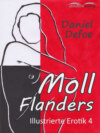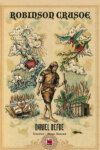Buch lesen: «From London to Land's End and Two Letters from the "Journey through England by a Gentleman"»
INTRODUCTION
At the end of this book there are a couple of letters from a volume of the “Travels in England” which were not by Defoe, although resembling Defoe’s work so much in form and title, and so near to it in date of publication, that a volume of one book is often found taking the place of a volume of the other. A purchaser of Defoe’s “Travels in England” has therefore to take care that he is not buying one of the mixed sets. Each of the two works describes England at the end of the first quarter of the eighteenth century. Our added descriptions of Bath, and of the journey by Chester to Holyhead, were published in 1722; Defoe’s “Journey from London to the Land’s End” was published in 1724, and both writers help us to compare the past with the present by their accounts of England as it was in the days of George the First, more than a hundred and sixty years ago. The days certainly are gone when, after a good haul of pilchards, seventeen can be bought for a halfpenny, and two gentlemen and their servant can have them broiled at a tavern and dine on them for three farthings, dressing and all. In another of his journeys Defoe gives a seaside tavern bill, in which the charges were ridiculously small for everything except for bread. It was war time, and the bread was the most costly item in the bill.
In the earlier part of this account of the “Journey from London to the Land’s End,” there is interest in the fresh memories of the rebuilding and planting at Hampton Court by William III. and Queen Mary. The passing away, and in opinion of that day the surpassing, of Wolsey’s palace there were none then to regret.
A more characteristic feature in this letter will be found in the details of a project which Defoe says he had himself advocated before the Lord-Treasurer Godolphin, for the settlement of poor refugees from the Palatinate upon land in the New Forest. Our friendly relations with the Palatinate had begun with the marriage of James the First’s eldest daughter to the Elector Palatine, who brought on himself much trouble by accepting the crown of Bohemia from the subjects of the Emperor Ferdinand the Second. As a Protestant Prince allied by marriage to England, he drew from England sympathies and ineffectual assistance. Many years afterwards, during the war with France in Queen Anne’s time, the allies were unprosperous in 1707, and Marshal Villars was victorious upon the Rhine. The pressure of public feeling on behalf of refugees from the Palatinate did not last long enough for any action to be taken. But if it had seemed well to the Government to accept the project advocated by Defoe, we should have had a clearance of what is now the most beautiful part of the New Forest, near Lyndhurst; and in place of the little area that still preserves all the best features of forest land, we should have had a town of Englishmen descended from the latest of the German settlements upon our soil. Upon the political economy of Defoe’s project, and the accuracy of his calculations, and the more or less resemblance of his scheme to the system of free grants of land in unsettled regions beyond the sea, each reader will speculate in his own way.
There are interesting notes on the extent of the sheep farming upon the Downs crossed in this journey. There is high praise of the ladies of Dorsetshire. There are some pleasant notes upon dialect, including the story, often quoted, of the schoolboy whom Defoe saw and heard reading his Bible in class, and while following every word and line with his eye, translating it as he went into his own way of speech. Thus he turned the third verse of the fifth chapter of Solomon’s Song, “I have put off my coat; how shall I put it on? I have washed my feet; how shall I defile them?” into “Chav a doffed my cooat; how shall I don’t? Chav a washed my veet; how shall I moil ’em?” This is a good example of intelligent reading; for the boy took in the sense of the printed lines, and then made it his own by giving homely utterance to what he understood.
Defoe tells in this letter several tales of the shorefolk about the Great Storm of November, 1703, recollection of which Addison used effectively in the following year in his poem on the Battle of Blenheim. There was the sweeping away of the first Eddystone Lighthouse, with the builder, confident in its strength, who had desired to be in it some night when the wind blew with unusual fury. There was the story also of the man and two boys, in a ship laden with tin, blown out of Helford Haven, and of their hairbreadth escape by counsel of one of the boys who ran the ship through rocks into a narrow creek that he knew in the Isle of Wight. The form of the coast has been changed so much since 1703 by the beat of many storms, that it may be now impossible to know that little cove as the boy knew it. It must have been at the back of the island. Were the storm waves tossing then in Steephill Cove or Luccombe Chine? Does there survive anywhere a tradition of that perilous landing? Probably not. Wreck follows upon wreck, and memory of many tales of death and peril on the rock-bound coast lie between us and the boy who took the helm when he spied the well-known creek as the great storm was sweeping the ship on to destruction. From the next year after that famous storm, Defoe gives a memory of disaster seen by himself at Plymouth in the wreck of a little fleet from Barbadoes. In another part of this letter he tells what he had seen of a fight at sea between three French men-of-war and two English with a convoy of two or three trading vessels.
There will be found also in this letter a good story of a Cornish dog taken from Carew’s “Survey of Cornwall,” which may pair with that of the London dog who lately took a wounded fellow dog to hospital.
The writer of this letter speaks of the civil war times as a friend of monarchy, but when he tells of the landing of William III. at Torbay, he suggests that the people had good reason for rejoicing, and throughout the journey he takes note of a great inequality he finds in distribution of the right of returning members to Parliament. It is evident that he could propound a project for a Reform Bill, though he is careful so to describe England as to avoid giving offence to Englishmen of any party. The possibility of some change for the better here and there presents itself; Defoe glances and passes on. His theme is England and the English; he shows us, clearly and very simply, what he has seen of the social life and manners of the people, of the features of the land itself, and their relation to its industries; traces of the past, and prospects of the future; shepherds, fishermen, merchants; catching of salmon peel in mill-weirs, and catching of husbands at provincial assemblies; with whatever else he found worth friendly observation.
H. M.
FROM LONDON TO LAND’S END
Sir,
I find so much left to speak of, and so many things to say in every part of England, that my journey cannot be barren of intelligence which way soever I turn; no, though I were to oblige myself to say nothing of anything that had been spoken of before.
I intended once to have gone due west this journey; but then I should have been obliged to crowd my observations so close (to bring Hampton Court, Windsor, Blenheim, Oxford, the Bath and Bristol all into one letter; all those remarkable places lying in a line, as it were, in one point of the compass) as to have made my letter too long, or my observations too light and superficial, as others have done before me.
This letter will divide the weighty task, and consequently make it sit lighter on the memory, be pleasanter to the reader, and make my progress the more regular: I shall therefore take in Hampton Court and Windsor in this journey; the first at my setting out, and the last at my return, and the rest as their situation demands.
As I came down from Kingston, in my last circuit, by the south bank of the Thames, on the Surrey side of the river; so I go up to Hampton Court now on the north bank, and on the Middlesex side, which I mention, because, as the sides of the country bordering on the river lie parallel, so the beauty of the country, the pleasant situations, the glory of innumerable fine buildings (noblemen’s and gentlemen’s houses, and citizens’ retreats), are so equal a match to what I had described on the other side that one knows not which to give the preference to: but as I must speak of them again, when I come to write of the county of Middlesex, which I have now purposely omitted; so I pass them over here, except the palace of Hampton only, which I mentioned in “Middlesex,” for the reasons above.
Hampton Court lies on the north bank of the River Thames, about two small miles from Kingston, and on the road from Staines to Kingston Bridge; so that the road straightening the parks a little, they were obliged to part the parks, and leave the Paddock and the great park part on the other side the road – a testimony of that just regard that the kings of England always had, and still have, to the common good, and to the service of the country, that they would not interrupt the course of the road, or cause the poor people to go out of the way of their business to or from the markets and fairs, for any pleasure of their own whatsoever.
The palace of Hampton Court was first founded and built from the ground by that great statesman and favourite of King Henry VIII, Cardinal Wolsey; and if it be a just observation anywhere, as is made from the situation of the old abbeys and monasteries, the clergy were excellent judges of the beauty and pleasantness of the country, and chose always to plant in the best; I say, if it was a just observation in any case, it was in this; for if there be a situation on the whole river between Staines Bridge and Windsor Bridge pleasanter than another, it is this of Hampton; close to the river, yet not offended by the rising of its waters in floods or storms; near to the reflux of the tides, but not quite so near as to be affected with any foulness of the water which the flowing of the tides generally is the occasion of. The gardens extend almost to the bank of the river, yet are never overflowed; nor are there any marshes on either side the river to make the waters stagnate, or the air unwholesome on that account. The river is high enough to be navigable, and low enough to be a little pleasantly rapid; so that the stream looks always cheerful, not slow and sleeping, like a pond. This keeps the waters always clear and clean, the bottom in view, the fish playing and in sight; and, in a word, it has everything that can make an inland (or, as I may call it, a country) river pleasant and agreeable.
I shall sing you no songs here of the river in the first person of a water-nymph, a goddess, and I know not what, according to the humour of the ancient poets; I shall talk nothing of the marriage of old Isis, the male river, with the beautiful Thame, the female river (a whimsey as simple as the subject was empty); but I shall speak of the river as occasion presents, as it really is made glorious by the splendour of its shores, gilded with noble palaces, strong fortifications, large hospitals, and public buildings; with the greatest bridge, and the greatest city in the world, made famous by the opulence of its merchants, the increase and extensiveness of its commerce; by its invincible navies, and by the innumerable fleets of ships sailing upon it to and from all parts of the world.
As I meet with the river upwards in my travels through the inland country I shall speak of it, as it is the channel for conveying an infinite quantity of provisions from remote counties to London, and enriching all the counties again that lie near it by the return of wealth and trade from the city; and in describing these things I expect both to inform and divert my readers, and speak in a more masculine manner, more to the dignity of the subject, and also more to their satisfaction, than I could do any other way.
There is little more to be said of the Thames relating to Hampton Court, than that it adds by its neighbourhood to the pleasure of the situation; for as to passing by water to and from London, though in summer it is exceeding pleasant, yet the passage is a little too long to make it easy to the ladies, especially to be crowded up in the small boats which usually go upon the Thames for pleasure.
The prince and princess, indeed, I remember came once down by water upon the occasion of her Royal Highness’s being great with child, and near her time – so near that she was delivered within two or three days after. But this passage being in the royal barges, with strength of oars, and the day exceeding fine, the passage, I say, was made very pleasant, and still the more so for being short. Again, this passage is all the way with the stream, whereas in the common passage upwards great part of the way is against the stream, which is slow and heavy.
But be the going and coming how it will by water, it is an exceeding pleasant passage by land, whether we go by the Surrey side or the Middlesex side of the water, of which I shall say more in its place.
The situation of Hampton Court being thus mentioned, and its founder, it is to be mentioned next that it fell to the Crown in the forfeiture of his Eminence the Cardinal, when the king seized his effects and estate, by which this and Whitehall (another house of his own building also) came to King Henry VIII. Two palaces fit for the kings of England, erected by one cardinal, are standing monuments of the excessive pride as well as the immense wealth of that prelate, who knew no bounds of his insolence and ambition till he was overthrown at once by the displeasure of his master.
Whoever knew Hampton Court before it was begun to be rebuilt, or altered, by the late King William, must acknowledge it was a very complete palace before, and fit for a king; and though it might not, according to the modern method of building or of gardening, pass for a thing exquisitely fine, yet it had this remaining to itself, and perhaps peculiar – namely, that it showed a situation exceedingly capable of improvement, and of being made one of the most delightful palaces in Europe.
This her Majesty Queen Mary was so sensible of, that, while the king had ordered the pulling down the old apartments, and building it up in that most beautiful form which we see them now appear in, her Majesty, impatient of enjoying so agreeable a retreat, fixed upon a building formerly made use of chiefly for landing from the river, and therefore called the Water Galley, and here, as if she had been conscious that she had but a few years to enjoy it, she ordered all the little neat curious things to be done which suited her own conveniences, and made it the pleasantest little thing within doors that could possibly be made, though its situation being such as it could not be allowed to stand after the great building was finished, we now see no remains of it.
The queen had here her gallery of beauties, being the pictures at full-length of the principal ladies attending upon her Majesty, or who were frequently in her retinue; and this was the more beautiful sight because the originals were all in being, and often to be compared with their pictures. Her Majesty had here a fine apartment, with a set of lodgings for her private retreat only, but most exquisitely furnished, particularly a fine chintz bed, then a great curiosity; another of her own work while in Holland, very magnificent, and several others; and here was also her Majesty’s fine collection of Delft ware, which indeed was very large and fine; and here was also a vast stock of fine china ware, the like whereof was not then to be seen in England; the long gallery, as above, was filled with this china, and every other place where it could be placed with advantage.
The queen had here also a small bathing-room, made very fine, suited either to hot or cold bathing, as the season should invite; also a dairy, with all its conveniences, in which her Majesty took great delight. All these things were finished with expedition, that here their Majesties might repose while they saw the main building go forward. While this was doing, the gardens were laid out, the plan of them devised by the king himself, and especially the amendments and alterations were made by the king or the queen’s particular special command, or by both, for their Majesties agreed so well in their fancy, and had both so good judgment in the just proportions of things, which are the principal beauties of a garden, that it may be said they both ordered everything that was done.
Here the fine parcel of limes which form the semicircle on the south front of the house by the iron gates, looking into the park, were by the dexterous hand of the head gardener removed, after some of them had been almost thirty years planted in other places, though not far off. I know the King of France in the decoration of the gardens of Versailles had oaks removed, which by their dimensions must have been above an hundred years old, and yet were taken up with so much art, and by the strength of such engines, by which such a monstrous quantity of earth was raised with them, that the trees could not feel their remove – that is to say, their growth was not at all hindered. This, I confess, makes the wonder much the less in those trees at Hampton Court gardens; but the performance was not the less difficult or nice, however, in these, and they thrive perfectly well.
While the gardens were thus laid out, the king also directed the laying the pipes for the fountains and jet-d’eaux, and particularly the dimensions of them, and what quantity of water they should cast up, and increased the number of them after the first design.
The ground on the side of the other front has received some alterations since the taking down the Water Galley; but not that part immediately next the lodgings. The orange-trees and fine Dutch bays are placed within the arches of the building under the first floor; so that the lower part of the house was all one as a greenhouse for sometime. Here stand advanced, on two pedestals of stone, two marble vases or flower-pots of most exquisite workmanship – the one done by an Englishman, and the other by a German. It is hard to say which is the best performance, though the doing of it was a kind of trial of skill between them; but it gives us room, without any partiality, to say they were both masters of their art.
The parterre on that side descends from the terrace-walk by steps, and on the left a terrace goes down to the water-side, from which the garden on the eastward front is overlooked, and gives a most pleasant prospect.
The fine scrolls and bordure of these gardens were at first edged with box, but on the queen’s disliking the smell those edgings were taken up, but have since been planted again – at least, in many places – nothing making so fair and regular an edging as box, or is so soon brought to its perfection.
On the north side of the house, where the gardens seemed to want screening from the weather or the view of the chapel, and some part of the old building required to be covered from the eye, the vacant ground, which was large, is very happily cast into a wilderness, with a labyrinth and espaliers so high that they effectually take off all that part of the old building which would have been offensive to the sight. This labyrinth and wilderness is not only well designed, and completely finished, but is perfectly well kept, and the espaliers filled exactly at bottom, to the very ground, and are led up to proportioned heights on the top, so that nothing of that kind can be more beautiful.
The house itself is every way answerable on the outside to the beautiful prospect, and the two fronts are the largest and, beyond comparison, the finest of the kind in England. The great stairs go up from the second court of the palace on the right hand, and lead you to the south prospect.
I hinted in my last that King William brought into England the love of fine paintings as well as that of fine gardens; and you have an example of it in the cartoons, as they are called, being five pieces of such paintings as, if you will believe men of nice judgment and great travelling, are not to be matched in Europe. The stories are known, but especially two of them – viz., that of St. Paul preaching on Mars Hill to the self-wise Athenians, and that of St. Peter passing sentence of death on Ananias – I say, these two strike the mind with the utmost surprise, the passions are so drawn to the life; astonishment, terror, and death in the face of Ananias, zeal and a sacred fire in the eyes of the blessed Apostle, fright and surprise upon the countenances of the beholders in the piece of Ananias; all these describe themselves so naturally that you cannot but seem to discover something of the like passions, even in seeing them.
In the other there is the boldness and courage with which St. Paul undertook to talk to a set of men who, he knew, despised all the world, as thinking themselves able to teach them anything. In the audience there is anticipating pride and conceit in some, a smile or fleer of contempt in others, but a kind of sensible conviction, though crushed in its beginning, on the faces of the rest; and all together appear confounded, but have little to say, and know nothing at all of it; they gravely put him off to hear him another time; all these are seen here in the very dress of the face – that is, the very countenances which they hold while they listen to the new doctrine which the Apostle preached to a people at that time ignorant of it.
The other of the cartoons are exceeding fine but I mention these as the particular two which are most lively, which strike the fancy the soonest at first view. It is reported, but with what truth I know not, that the late French king offered an hundred thousand louis d’ors for these pictures; but this, I say, is but a report. The king brought a great many other fine pieces to England, and with them the love of fine paintings so universally spread itself among the nobility and persons of figure all over the kingdom that it is incredible what collections have been made by English gentlemen since that time, and how all Europe has been rummaged, as we may say, for pictures to bring over hither, where for twenty years they yielded the purchasers, such as collected them for sale, immense profit. But the rates are abated since that, and we begin to be glutted with the copies and frauds of the Dutch and Flemish painters who have imposed grossly upon us. But to return to the palace of Hampton Court. Queen Mary lived not to see it completely finished, and her death, with the other difficulties of that reign, put a stop to the works for some time till the king, reviving his good liking of the place, set them to work again, and it was finished as we see it. But I have been assured that had the peace continued, and the king lived to enjoy the continuance of it, his Majesty had resolved to have pulled down all the remains of the old building (such as the chapel and the large court within the first gate), and to have built up the whole palace after the manner of those two fronts already done. In these would have been an entire set of rooms of state for the receiving and, if need had been, lodging and entertaining any foreign prince with his retinue; also offices for all the Secretaries of State, Lords of the Treasury, and of Trade, to have repaired to for the despatch of such business as it might be necessary to have done there upon the king’s longer residence there than ordinary; as also apartments for all the great officers of the Household; so that had the house had two great squares added, as was designed, there would have been no room to spare, or that would not have been very well filled. But the king’s death put an end to all these things.
Since the death of King William, Hampton Court seemed abandoned of its patron. They have gotten a kind of proverbial saying relating to Hampton Court, viz., that it has been generally chosen by every other prince since it became a house of note. King Charles was the first that delighted in it since Queen Elizabeth’s time. As for the reigns before, it was but newly forfeited to the Crown, and was not made a royal house till King Charles I., who was not only a prince that delighted in country retirements, but knew how to make choice of them by the beauty of their situation, the goodness of the air, &c. He took great delight here, and, had he lived to enjoy it in peace, had purposed to make it another thing than it was. But we all know what took him off from that felicity, and all others; and this house was at last made one of his prisons by his rebellious subjects.
His son, King Charles II., may well be said to have an aversion to the place, for the reason just mentioned – namely, the treatment his royal father met with there – and particularly that the rebel and murderer of his father, Cromwell, afterwards possessed this palace, and revelled here in the blood of the royal party, as he had done in that of his sovereign. King Charles II. therefore chose Windsor, and bestowed a vast sum in beautifying the castle there, and which brought it to the perfection we see it in at this day – some few alterations excepted, done in the time of King William.
King William (for King James is not to be named as to his choice of retired palaces, his delight running quite another way) – I say, King William fixed upon Hampton Court, and it was in his reign that Hampton Court put on new clothes, and, being dressed gay and glorious, made the figure we now see it in.
The late queen, taken up for part of her reign in her kind regards to the prince her spouse, was obliged to reside where her care of his health confined her, and in this case kept for the most part at Kensington, where he died; but her Majesty always discovered her delight to be at Windsor, where she chose the little house, as it was called, opposite to the Castle, and took the air in her chaise in the parks and forest as she saw occasion.
Now Hampton Court, by the like alternative, is come into request again; and we find his present Majesty, who is a good judge too of the pleasantness and situation of a place of that kind, has taken Hampton Court into his favour, and has made it much his choice for the summer’s retreat of the Court, and where they may best enjoy the diversions of the season. When Hampton Court will find such another favourable juncture as in King William’s time, when the remainder of her ashes shall be swept away, and her complete fabric, as designed by King William, shall be finished, I cannot tell; but if ever that shall be, I know no palace in Europe, Versailles excepted, which can come up to her, either for beauty and magnificence, or for extent of building, and the ornaments attending it.
From Hampton Court I directed my course for a journey into the south-west part of England; and to take up my beginning where I concluded my last, I crossed to Chertsey on the Thames, a town I mentioned before; from whence, crossing the Black Desert, as I called it, of Bagshot Heath, I directed my course for Hampshire or Hantshire, and particularly for Basingstoke – that is to say, that a little before, I passed into the great Western Road upon the heath, somewhat west of Bagshot, at a village called Blackwater, and entered Hampshire, near Hartleroe.
Before we reach Basingstoke, we get rid of that unpleasant country which I so often call a desert, and enter into a pleasant fertile country, enclosed and cultivated like the rest of England; and passing a village or two we enter Basingstoke, in the midst of woods and pastures, rich and fertile, and the country accordingly spread with the houses of the nobility and gentry, as in other places. On the right hand, a little before we come to the town, we pass at a small distance the famous fortress, so it was then, of Basing, being a house belonging then to the Marquis of Winchester, the great ancestor of the present family of the Dukes of Bolton.
This house, garrisoned by a resolute band of old soldiers, was a great curb to the rebels of the Parliament party almost through that whole war; till it was, after a vigorous defence, yielded to the conquerors by the inevitable fate of things at that time. The old house is, indeed, demolished but the successor of the family, the first Duke of Bolton, has erected a very noble fabric in the same place, or near it, which, however, is not equal to the magnificence which fame gives to the ancient house, whose strength of building only, besides the outworks, withstood the battery of cannon in several attacks, and repulsed the Roundheads three or four times when they attempted to besiege it. It is incredible what booty the garrison of this place picked up, lying as they did just on the great Western Road, where they intercepted the carriers, plundered the waggons, and suffered nothing to pass – to the great interruption of the trade of the city of London.
Basingstoke is a large populous market-town, has a good market for corn, and lately within a very few years is fallen into a manufacture, viz., of making druggets and shalloons, and such slight goods, which, however, employs a good number of the poor people, and enables them to get their bread, which knew not how to get it before.
From hence the great Western Road goes on to Whitchurch and Andover, two market-towns, and sending members to Parliament; at the last of which the Downs, or open country, begins, which we in general, though falsely, call Salisbury Plain. But my resolution being to take in my view what I had passed by before, I was obliged to go off to the left hand, to Alresford and Winchester.




















